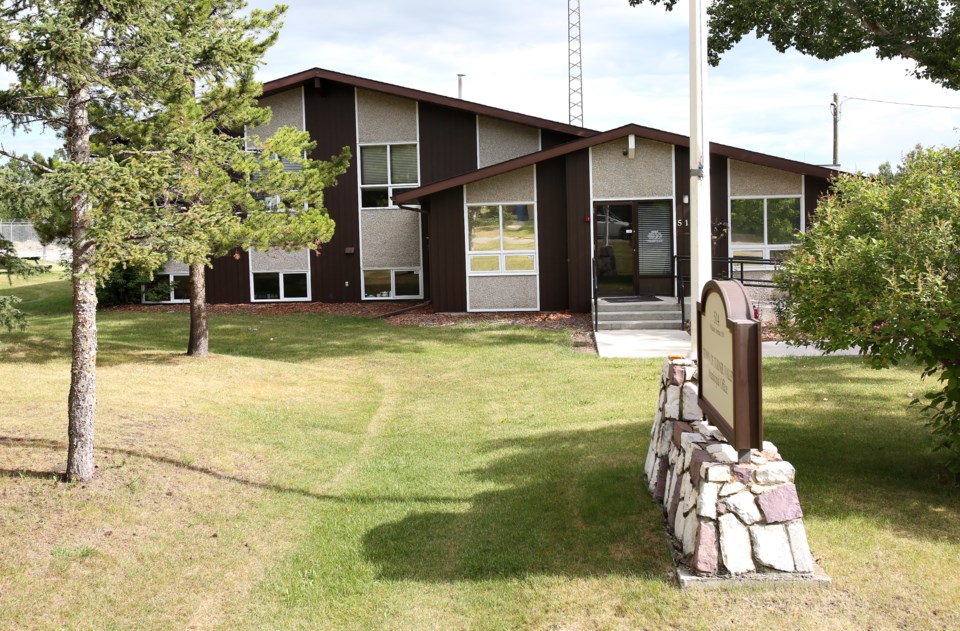The Town of Turner Valley is making minor changes to this year’s mill rates to keep taxes as neutral as possible in light of the COVID-19 pandemic.
Using the 2019 property assessments as a guideline, Turner Valley Town council passed third and final reading for its tax rate bylaw at its May 19 meeting which will maintain the residential municipal mill rate at 7.66666 for a third consecutive year after residential assessments values decreased by 2.08 per cent from 2018.
This means the average home with an assessed value of $350,000 in 2018 will see a $56 drop in taxes this year, not including the education property tax and Westwinds Communities requisitions, both of which decreased slightly this year.
Residential properties account for 90.4 per cent of the Town’s property taxes.
The tax rate bylaw also includes a drop in the non-residential mill rate from 8.57999 to 8.17999, in response to the 4.56 per cent increase in industrial and commercial assessment values from 2018.
Coun. Cindy Holladay said the drop in residential property assessments means most homeowners will experience a tax savings, while the drop in mill rate for non-residential properties to match increased property assessments should result in little to no change for most taxpayers.
Holladay said the Turner Valley Finance Committee made these recommendations to help keep the amount citizens pay in property taxes on par with last year.
“If we kept the (non-residential) mill rate the same they would see about $100 to $200 increase in what we collect from them,” Holladay told council before it passed first and second readings of its tax rate bylaw in early May. “We didn’t think it was a great message to send out in the COVID-19 crisis.”
Dropping the non-residential mill rate will cause a $57,394 deficit in tax revenue, which the Town will cover using its tax stabilization fund.
Holladay said the deficit may be offset by the potential for a reduction in operational expenses this year as the Town awaits word from the Province on whether or not it can open its outdoor pool and spray park this season. The opening of both facilities typically occurs on the Victoria Day weekend in May.
“If we take from the tax stabilization fund, at the end of the year we might be transferring into it anyway,” she said. “There’s a lot of volatility in the budget. I think if we can provide relief to residents at this time we absolutely should.”
Coun. Garry Raab, also a member of the finance committee, agreed with Holladay.
“The assessments have gone up for commercial and we didn’t want to see any businesses pay any extra this year so that’s why we reduced the mill rate,” he said. “If we were to raise the residential mill rate, yes we would have more money in our coffers, but I don’t think it will be a good feel in the community. Let’s be as fair as we can be at this point in time.”
Coun. Jonathan Gordon expressed concern about the Town using reserve funds to make up the difference when the future is uncertain.
“Property values are dramatically being impacted due to COVID-19 and we don’t see that recovering any time soon,” he said. “The fact that we’re dipping into our tax stabilization fund this year - I know you’re hoping we can redirect some of the savings we will have this year - but I think next year we will be faced with a much more severe assessment reduction for our residential properties.”
Coun. Jamie Wilkie said if there’s any situation that makes sense to dip into reserve funds, it’s the COVID-19 pandemic.
“I worry about the environment that we’re in and holding the line on residential taxes makes sense,” he said. “We saw fairly meaningful increases in business assessments, which hits them at exactly the wrong time. Using the stabilization fund is not a long term strategy for sure.”
Coun. John Waring said the current situation doesn’t strike him as a financial crisis or cause to dip into reserve funds.
“We’re giving a reduction where we don’t need to give a reduction,” he said. “I’ve got a $250,000 home and a few cents a week is not going to make a real significant difference in my life. I just don’t agree with the logic.”
Council adopted its 2020 budget in December approving $5,700,140 in expenses, a 1.5 per cent decline from 2019. Approximately $3 million will be covered by municipal taxes and $2.7 million by municipal revenues and transfers from other sources.
COVID-19 UPDATE: Follow our COVID-19 special section for the latest local and national news on the coronavirus pandemic, as well as resources, FAQs and more.




.png;w=120;h=80;mode=crop)